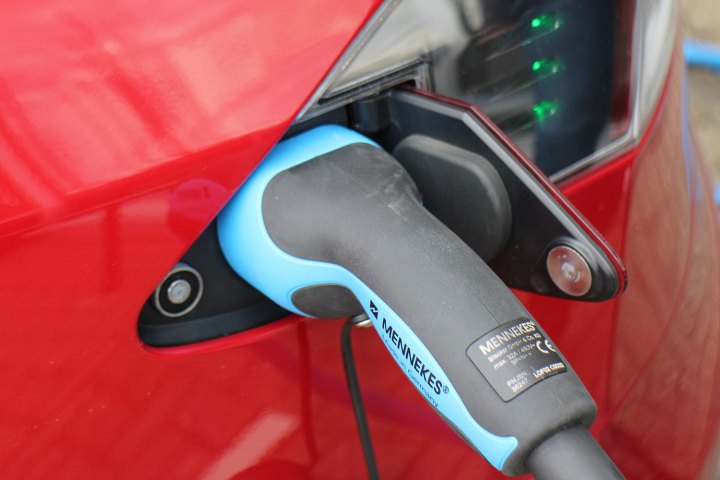
Particulate matter consists of small particles and liquid droplets — everything from hydrocarbons to lead, zinc, and iron — suspended in the air. Even if it’s not in a gaseous state, it’s still air pollution, and sometimes called “particle pollution.”
“Numerous scientific studies have linked particle pollution exposure to a variety of problems, including: premature death in people with heart or lung disease; nonfatal heart attacks; irregular heartbeat; aggravated asthma; decreased lung function; and increased respiratory symptoms, such as irritation of the airways, coughing or difficulty breathing,” according to the U.S. Environmental Protection Agency.
Engine exhaust does contribute particulate matter, but since car manufacturers have focused on reducing engine emissions, they now only contribute 10 to 15 percent of the particulate matter from modern internal-combustion vehicles. The majority come instead from tires, brakes, and dust kicked up from road surfaces.
Electric-powered vehicles, of course, have no exhaust emissions. However, because they’re 24 percent heavier on average, the study found that EVs shed more particulate matter from tires and brakes, and also kick up more particulate matter from road surfaces.
When you combine the benefit of having no engine exhaust with the penalty of additional weight, the study claims that when it comes to total particle emissions, electric vehicles are only 1 to 3 percent cleaner than internal-combustion vehicles.
The study calls for weight reduction in all vehicles, particularly EVs, since without lighter batteries they will only get heavier as people insist on longer driving distances per charge. “Future policy should consequently focus on setting standards for non-exhaust emissions and encouraging weight reduction of all vehicles to significantly reduce PM emissions from traffic.”
Editor’s note: This article was updated on 5/10/16 to better reflect that particle emissions are only one component of environmental impact.




